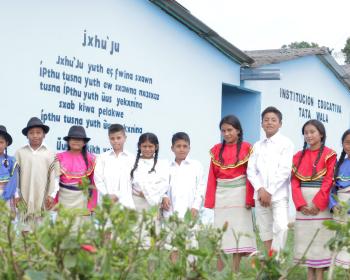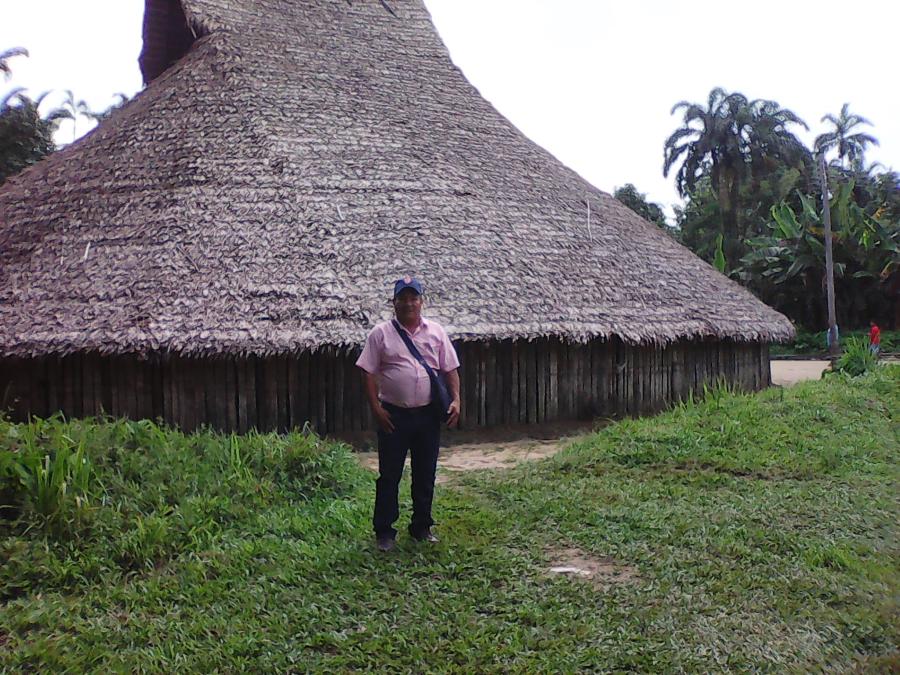This year alone, 17 indigenous youths as young as 12 years old have committed or attempted suicide in the rainforests of northwestern Colombia, reports the United Nations High Commissioner for Refugees.
"This is not normal. Suicide is never acceptable in indigenous culture," Gerard Fayoux, who has run the UNHCR field office in Apartado for four years, told the UNHCR. "This is a sign of great distress in the communities."
Colombia's 40-year civil war involving leftist guerillas, right-wing paramilitary groups, and the army has been typified by massive human rights abuses against indigenous peoples, peasant organizers, union members, and human rights and religious activists. Embera, Wounaan, Katio, and Chami elders told UNHCR representatives that they blame the loss of their children on a "great beast, or too many restless spirits in this land. They are the spirits of those killed in the fighting or murdered by the armed groups." After living in the midst of the civil war for their entire lives, the elders understand how the conflictÂ’s devastating consequences—poverty, displacement and brutality—inflict psychological as well as physical suffering.
From displacement to hunger to death, ColombiaÂ’s indigenous people have suffered overwhelmingly at the hands of the paramilitary and the guerilla group Revolutionary Armed Forces of Colombia (FARC). According to a September 2004 Amnesty International press release denouncing several FARC kidnappings on August 22 and 25, indigenous leaders are targeted because they refuse to work for the armed groups usurping their land, and thus are accused of aiding the enemy.
Last summer alone, reports the UNHCR, massacres or fighting between the army, rebel and right-wing groups displaced thousands of indigenous peoples and deprived entire communities of food, fuel, and medicine. Youths have been conscripted by both the FARC and the paramilitary and leaders have been threatened, killed, or disappeared, interrupting traditional social and political structures. UNHCR field research exposes how, with their daily lives marked by violence, want, uncertainty, and hopelessness, indigenous youthsÂ’ identities and self-esteem have eroded.
Such a case is that of 15-year-old Leida Salazar, who last year wrapped a skirt around her neck and hung herself from the rafters of her family home, reports The New York Times. The Embera girl left her father a suicide note detailing her fear of the guerillas that had forced her family into exile in the impoverished village of Riosucio.
Indigenous elders are concerned not only by the loss of young lives but also by the possibility that depression among youths makes them more susceptible to guerilla or paramilitary recruitment, thus allowing ColombiaÂ’s civil war to seep even further into the lifeblood of their communities. Over the past year the Embera and Wounaan indigenous communities voiced these concerns to the UNHCR and requested help in fighting the alarming trend of youth suicide. The UNHCR reports that in July 2004, in collaboration with a local indigenous organization, CAMIZBA, it initiated a project to provide psychological services and identity-affirming cultural activities to youths and their families. Indigenous spiritual leaders will visit communities to assess the causes of suicides, administer counseling in their own languages, and reinforce traditional values.



